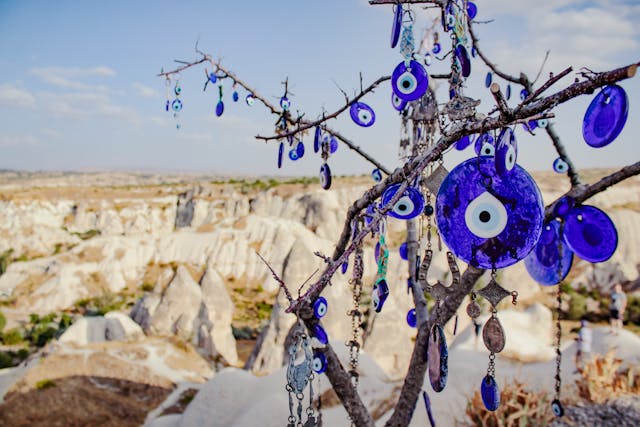In many cultures, jealousy is believed to be so powerful that it can cause harm, even serious harm in some cases. In Middle Eastern and Arabian cultures, amulets are often used for protection against the ‘evil eye,’ which is intended to repel the negative energy stemming from jealousy. It is widely believed that protection must be sought for family members, especially children, as well as for precious items within the home or elsewhere. To better explain this belief, I will share a couple of scenarios:
A guest visits a home and notices a beautiful vase. The guest repeatedly compliments the vase, admiring it so intensely that it seems as if they wish it were theirs. After the guest leaves, a minor mishap causes the vase to fall and shatter. The host attributes the incident to the guest’s fascination and jealousy. However, instead of dwelling on the loss, the host feels relieved, believing the ‘evil’ has been broken and prevented from affecting something or someone of greater value, such as a family member.
In another scenario, a child suddenly falls mysteriously ill. The child’s parents suspect the ‘evil eye’ from a recent visitor who may have shown excessive admiration for the child’s beauty or cuteness.
Why do some people seem to have this effect on others? How does it work? Some individuals may influence others, for better or worse, through thought alone. In most cases, they are unaware of their ability and have no intention of causing harm. However, there are those who are aware of this ability and can harness it to intentionally cause harm. Many dark practices employ such techniques, which can often be effective.
Nevertheless, it is important to remember the principle of karma: what we send out will ultimately return to us. Wishing harm on others may achieve its purpose, but harm will inevitably find its way back to the sender. Therefore, cultivating positive thoughts and intentions remains essential for personal well-being and harmony.



